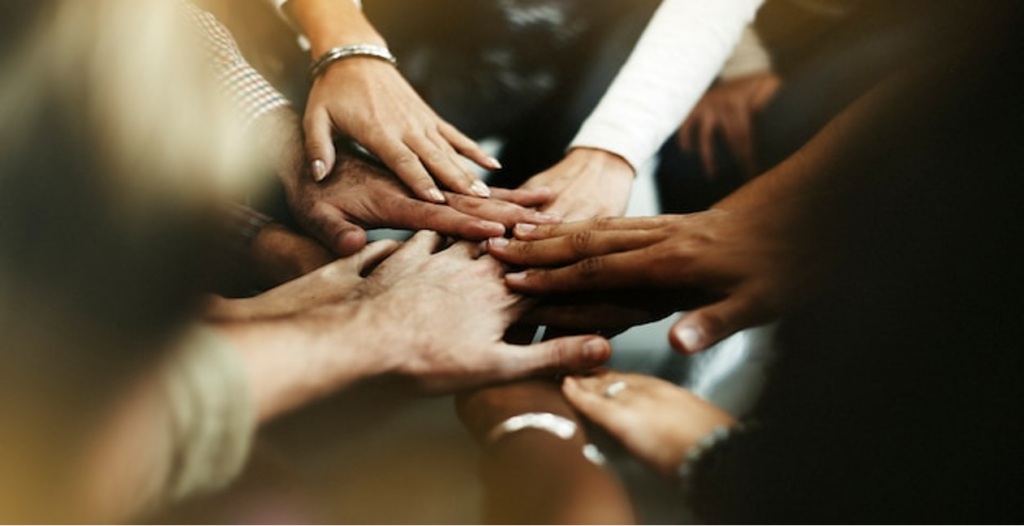
Better Relationships: The Power of Connection
6/24/2023
Whether you consider yourself an introvert or extrovert; whether people see you as a social butterfly or (like me) you prefer solitude and privacy, we all need human connection to various degrees. We need connection to find meaning and purpose, to be fulfilled and feel part of something bigger than us.
Building Better Relationships
How do we build better relationships? In short, mindful connections.
Our emotions define us as humans.
Emotion, or energy in motion, connects us to the world around us, to the people around us. That energy that exists between us allows us to feel heard, seen, understood and valued.
Research has shown that human connection contributes to brain health. People who have better relationships tend to have better cardiovascular and immunological health and improved cognitive performance. A recent Harvard study proposes that social connection can also lead to life satisfaction and longevity.
Whether you consider yourself an introvert or extrovert; whether people see you as a social butterfly or (like me) you prefer solitude and privacy, we all need human connection to various degrees. We need connection to find meaning and purpose, to be fulfilled and feel part of something bigger than us.
Studies (2015) have shown that a lack of human connection can be more harmful than smoking and obesity, increasing chances of dead by at least 50%. Other studies have shown how lack of human connection is linked to various conditions physical, mental and emotional that affect overall quality of life.
As deep-rooted as the need for connection is, we are not born with a natural ability to form healthy relationships. We need to learn skills and practice regularly until they become lifelong habits. Our mission the BEE ME Project help you learn these socioemotional skills and make them part of your daily life.
Whether you seek to improve your relationship with your spouse or partner or with family, friends and colleagues, we at the BEE Me Project will show you how mindfulness can improve your existing relationships or help you start new ones.
When you practice mindfulness, you open yourself up to the opportunity to grow and develop better, healthier and more fulfilling relationships with those around you.
Better Relationships with Mindfulness
When we take time to truly get to know ourselves and appreciate others, our connections flourish.
Through mindfulness, we can use simple techniques until they become habits, nourishing and strengthening the relationships we already have, or when creating new ones. Here are a few ways you can use mindfulness to build better relationships:
1. Presence and Intention
Start by being intentional and present. Pay attention not just to what is happening around you but what is happening within you. Being present means not getting caught up in your inner dialogue that may be telling you to seek approval, or to prove that you are right. When you really pay attention to the reasons behind your feelings and emotions, you give yourself the time and opportunity to pause and then respond instead of compulsively reacting. By remaining intentionally in the present moment, you will enhance your chances of achieving authentic and fulfilling relationships.
2. Mindful Pause
When engaging with others try taking pauses to breathe and to turn your attention within. This will allow you to limit the distractions that your inner stories may be causing and prevent reactions that are provoked by your own feelings and emotions rather than the actions or words of others. By pausing, you can decide whether you wish to spend energy on those inner feelings that are causing stress or anxiety or whether you wish to go back and focus on your interactions with those around you.
3. Mindful Listening
We all want to be listened to, but how often do we really listen to others? While we cannot force others to listen, we can start by learning how to truly listen ourselves.
Mindful listening requires attention and intention. It means taking interest in the other person and staying present and open with a nonjudgmental approach. Good listening also requires us to listen to ourselves and being self-aware. When you understand yourself and your motivations, you can make space for others and truly accept them.
4. Mindful Curiosity
By understanding the forces driving our thoughts and emotions, we can redirect our energy and attention to what really matters to us, what we truly value.
When you find yourself being judgmental of others, for instance, ask yourself if what you are thinking is really true or just a perception colored by your own experiences. The more you tune into your present moment with open curiosity, the more open you will be to redirect your attention towards others, seeing them clearly and compassionately.
5. Mindful Communication
Many of us have difficulty being vulnerable. There are many reasons, including past experiences, traumas, and self-sabotaging habits that prevent us from being clear about who we really are and what we need and want from ourselves or others.
When you learn to identify and express your own needs you invite others to do the same and naturally move towards a more genuine, understanding and compassionate connection with the people in your life.
It may feel scary at first, but being truthful is a gift we can give ourselves and others. Start by taking the risk! Be honest and others might follow. Try removing the mask you may be donning in social situations and your opportunities to have genuine connections will be greater. Listen intently to your inner voice and trust that it will guide you in your path to truthfulness and vulnerability.
6. Empathy and Compassion
Empathy and compassion arise organically within you when you tune in deeply into your own experience, feelings and emotions. Self-knowledge, insight and intuition exist within you and you can access them by listening to your heart and gut. Try asking yourself what the best course of action for any given situation is, what feels genuinely compassionate when engaging with others.
When you pause, breathe and listen to yourself you are better able to truly understand someone else and put yourself ‘in their shoes’. Being empathetic will help you to connect with others on a deeper level and will naturally engender compassion and appreciation.
7. Gratitude
Gratitude is a key component to a happy, fulfilling life. It motivates us to self-improvement and it can also strengthen our relationships.
You can start by just practicing gratitude for the people around you. This simple act will make you feel more connected. Think about the people in your life who have helped you and reach out to them to thank them. This will not only make you feel better but it will boost their confidence. In this way, gratitude creates a full circle of elevation, a strong positive emotion that can propel you towards creating better relationships.
Try making time each morning to express gratitude for things and people in your life. Practice showing appreciation and gratitude for your loved ones on a regular basis. In time, this beautiful habit will have a significant contribute to better relationships.
Better Relationships: Practical Ways to Connect
Now that we have explored how to be relationally mindful, let us look at practical ways to connect with others.
1. Make eye contact
When we make eye contact with others, we become vulnerable. This vulnerability can relieve stress and create a deeper connection. Looking into someone else’s eyes activates our Social Nervous System. It may not be always easy – but try it and you will grow closer and more connected to others.
2. Listen beyond the spoken words
If we truly pay attention and remain present when conversing with others, we can go beyond listening to the words they are speaking. Next time you start a conversation with someone, notice their body language, the tone of voice, their posture. This will allow you to fully understand and empathize with the other person. When we feel truly listened to and cared for, we create a mutual deep and loving relationship.
3. Try a hug or some form of physical contact
Physical contact is essential for wellbeing. We feel safe and connected via touch as it is the primary way in which we communicate before we are able to speak. Try actively and intentional using touch to show your love, compassion and trust in your loved ones. Touch their arm, hand or shoulder or give them a big hug. Notice their cues and look for – or ask for – consent above all.
Physical contact will naturally increase your sense of connection, compassion and acceptance. It will also bring about a mutual improvement in wellbeing by reducing blood pressure, soothing anxiety and alleviating fear. A simple hug can align our nervous system and strengthen our connection to others.
4. Create common plans, and keep them
Having common interests and goals will serve as an additional bond to those close to you and help develop better relationships. Making sure that you follow through on your commitments will cement that bond. While we all may find reasons to break our commitments, it is important to be honest with yourself and others and not to take on more than you can handle.
5. Practice kindness
Kindness can be the glue that keeps you connected to the people in your life. We all want to be around people who are kind, who make us feel safe and cared for. When you practice kindness you not only feel better but others do too. It can also be contagious when we ‘pay it forward’. Be kind to your loved ones and you will notice a stronger and more authentic connection which also as a bonus contributes to health and wellbeing.
6. Feel joy for others
Stay present and attentive to what happens in the lives of those around you. When you notice they are experiencing success or having a good day, be happy for them. Sometimes this feeling comes naturally, but if it does not, try to intentionally foster it. With practice you find that it will arise naturally. Try expressing your joy by congratulating them or showing you are happy for them. This will significantly improve your connection and create a feeling of fulfilment and satisfaction.
Identifying the people in your life who energize you and uplift you – and that you can do the same for – is a great step. Then you can work on enhancing those relations with mutual trust, respect, honesty and appreciation.
Want to learn more about better relationships? Let‘s connect!
At some time or another you may experience loneliness, even if you are surrounded by people and consider yourself sociable and outgoing. The key to overcoming this feeling is to look for opportunities to make genuine connections and build better relationships with those around you.
The BEE ME Project can provide support to help you get started on building better relationships. Let us work together towards a more fulfilling, genuine, healthy and happy life.
___________________________________________________________

